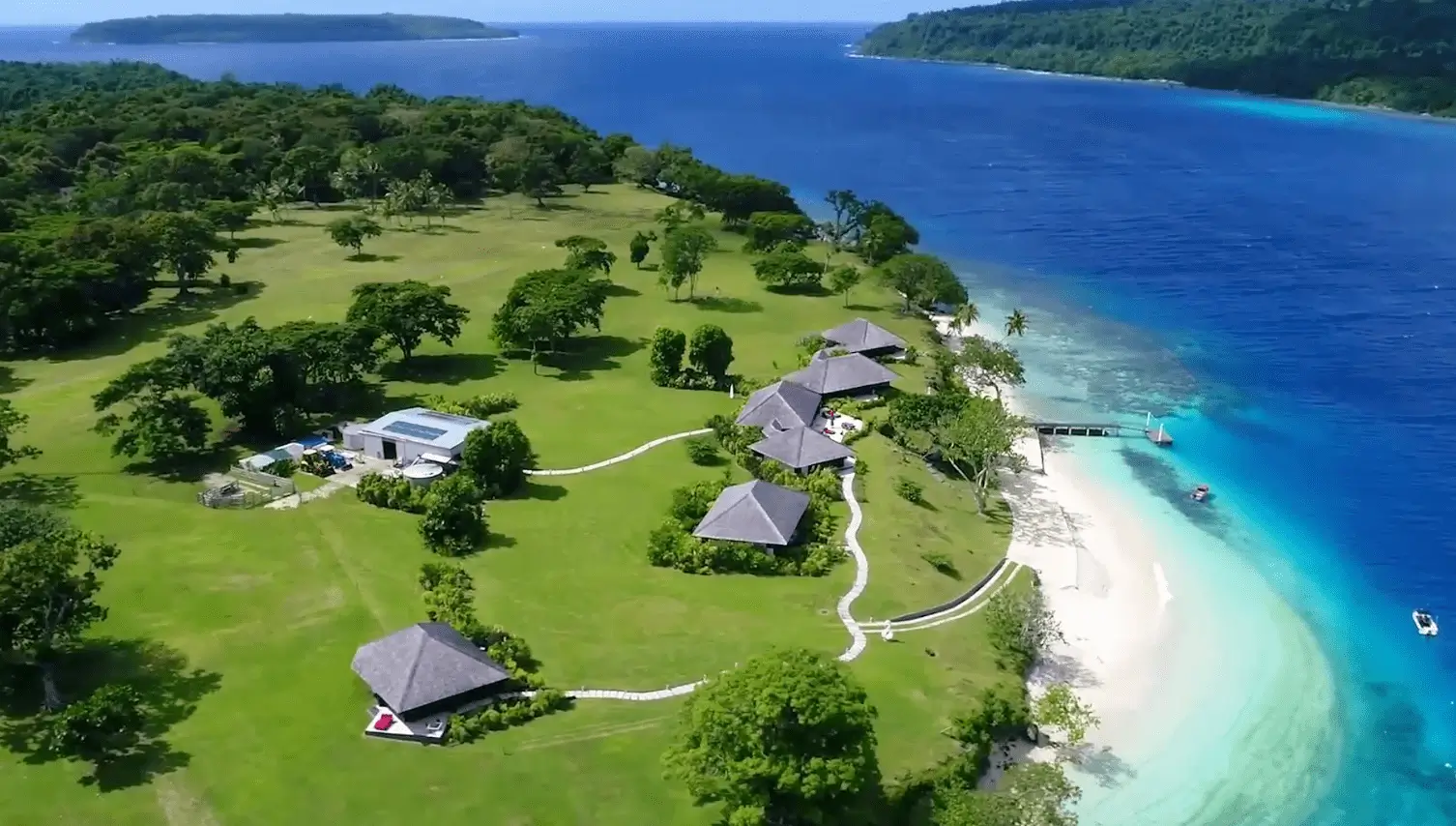The Satoshi Island project, Bitcoin paradise
The interesting project being developed on Lataro Island, baptized Satoshi Island, seeks to consecrate itself as the crypto capital of the world. Satoshi Island, the Bitcoin paradise. There is an island that wants to become the crypto capital of the world. It is Lataro Island, renamed Satoshi Island, inspired by the name of the creator of Bitcoin, Satoshi Nakamoto. This island is part of the Republic of Vanuatu, an island country located in the South Pacific Ocean and consisting of 83 islands.
This small private island of approximately 3 million square meters (or 3km2 to be more precise) is located next to Espiritu Santo Island. Although it is currently uninhabited, more than 50,000 applications are already from people interested in living on this island. The island is owned by Satoshi Islands Holding Limited, a group of enthusiasts whose goal is to be considered the home of cryptocurrencies and the world’s cryptocurrency, where cryptocurrencies can be exchanged and become legal tender. The island project is currently under development, with a team consisting of Denys Troyak, James Law, Taras Filatov, and Benjamin Nero.
The vision for this project began during the 2017 Bull Run. The team believes that this project will be a real crypto-economy, where its inhabitants will be able to buy cryptocurrencies and pay for everything they want with them. In addition, the properties within the island will be represented in non-fungible tokens (NFT).
This island intends to become a unique and exclusive place for cryptocurrencies, where events are held throughout the year, and that can be the headquarters of crypto projects and a meeting place for cryptocurrency enthusiasts regardless of whether they are from Spain, Latin America or anywhere else. It took the founders quite some time to find the right place for this project, as the island had to meet a series of requirements such as the location, it had to be distant enough to have privacy, and it could not be at risk from climate change. If you are interested in buying Bitcoin (BTC), you can do it through Changelly, where you can also purchase other types of tokens and exchange the BTC for the Litecoin you want to have in your wallet.
In the last few years, this project has become a reality; the Vanuatu authorities have granted specific permits to begin constructing the houses. They also obtained 50,000 applications for non-fungible tokens (NFT) from people on this island. The island expects to grant 21,000 residences tokenized on a blockchain, of which the first issue will be given through airdrops. The founders explained that each home would be an NFT or a terrestrial NFT of Satoshi Island, which would be exchanged for a physical house. As we can see on their official website, team architect James Law has designed so-called modular homes consisting of sustainable, intelligent, not buildings.
These modules can be combined and placed in different positions to create unique homes, apartments, and offices. These modules are built off-site and then transported to the island, ready to be assembled and assembled on the island. These modular homes are designed with the latest and greatest sustainable technology, with solar panels built on top of the homes to achieve a shared grid. It is expected that 100% of the energy required to run the island will be self-generated through renewable methods. The entire infrastructure is designed to have little impact on the surrounding environment.
The team also plans to launch an NFT marketplace to sell citizenship and ownership of the island. In addition, a “private opening” for short-term viewings will be available in the fourth quarter of this year. It is expected that by early 2023, NFT homeowners will be able to begin physically inhabiting the homes on the island. However, it should be noted that these NFTs will not grant Vanuatu citizenship, which is required to live on Satoshi Island. According to the official government website, citizenship in Vanuatu costs around US$130,000. As the island becomes more developed and people begin to inhabit it, it could operate as a decentralized autonomous organization (DAO), with governance sealed by the blockchain.

















